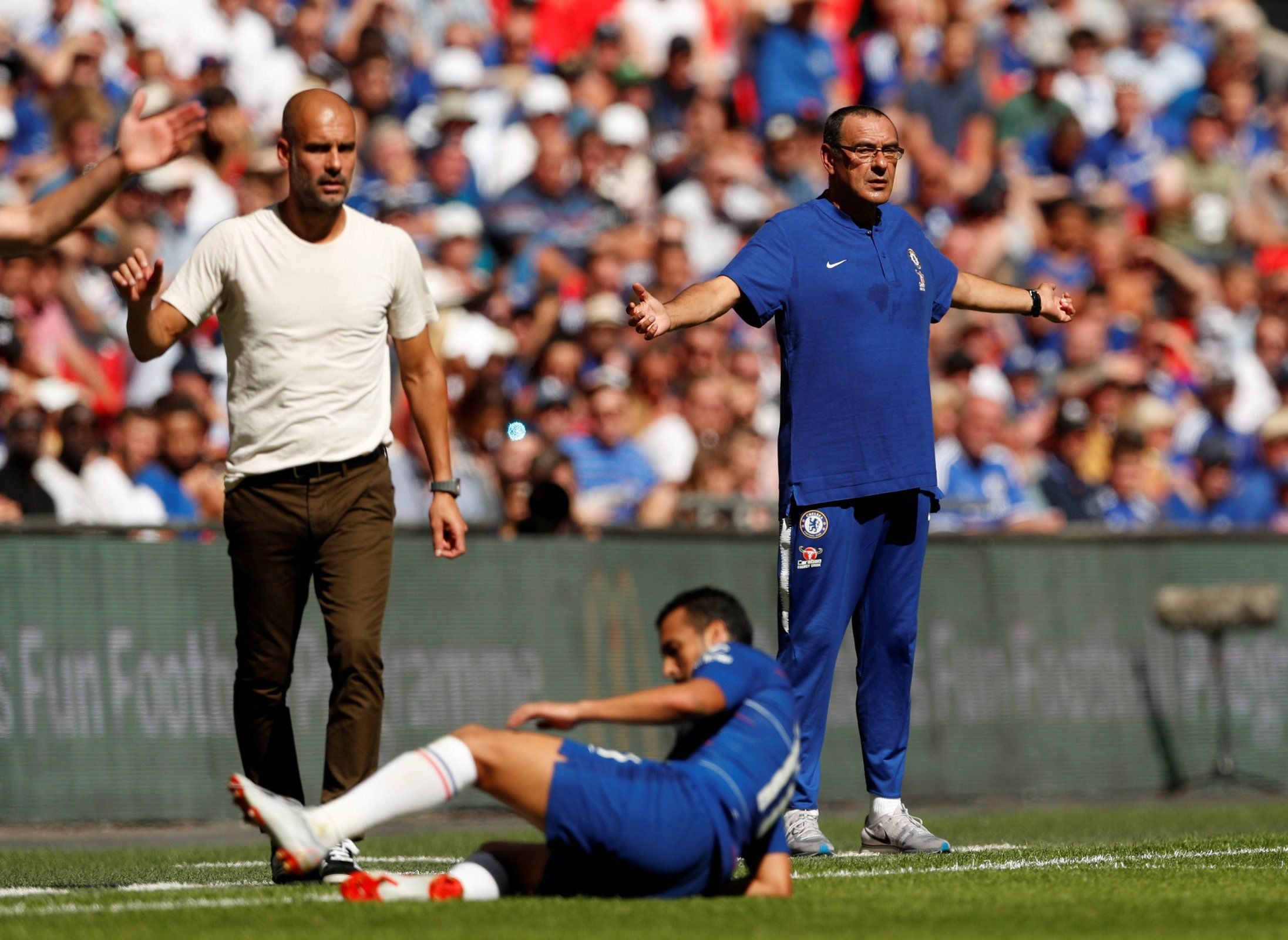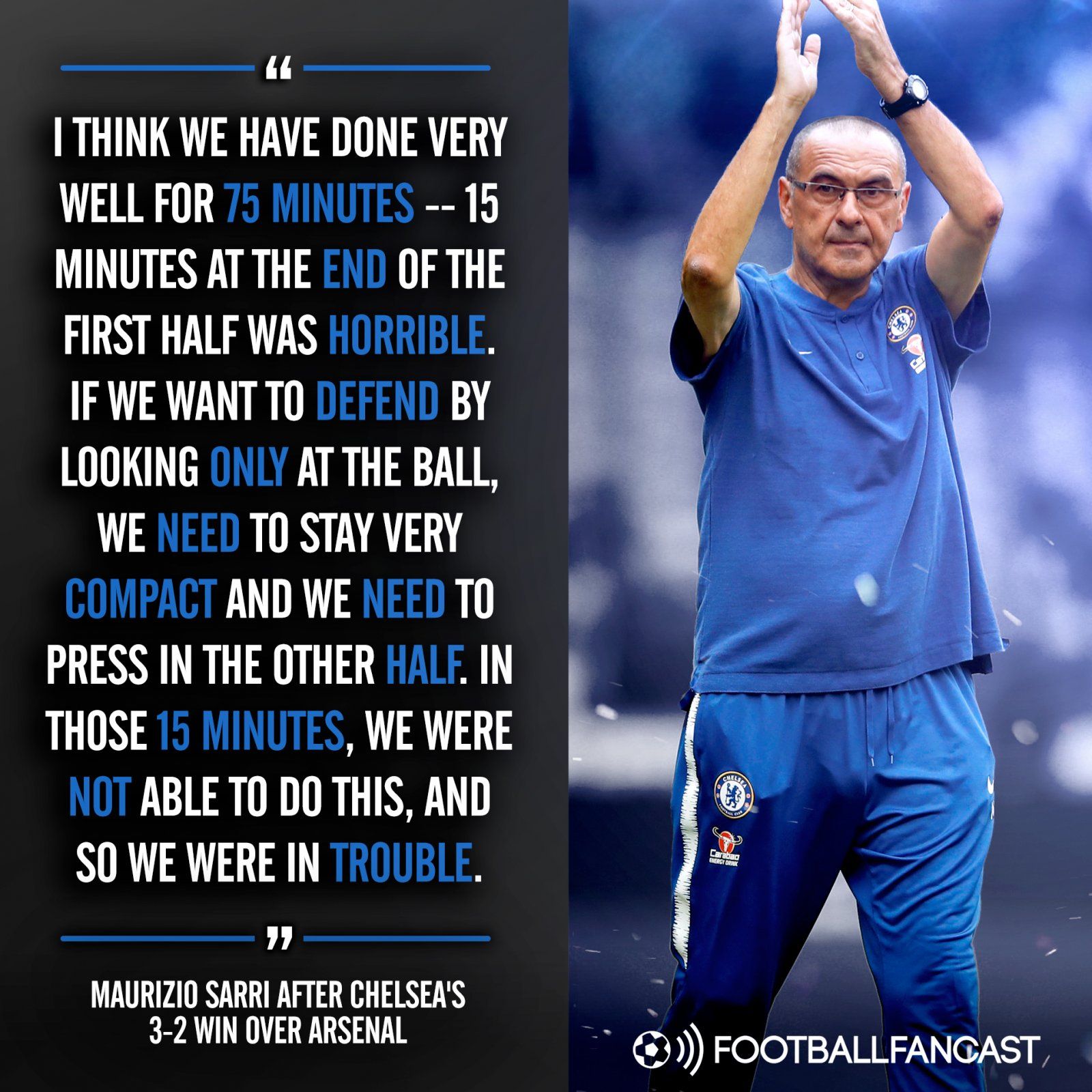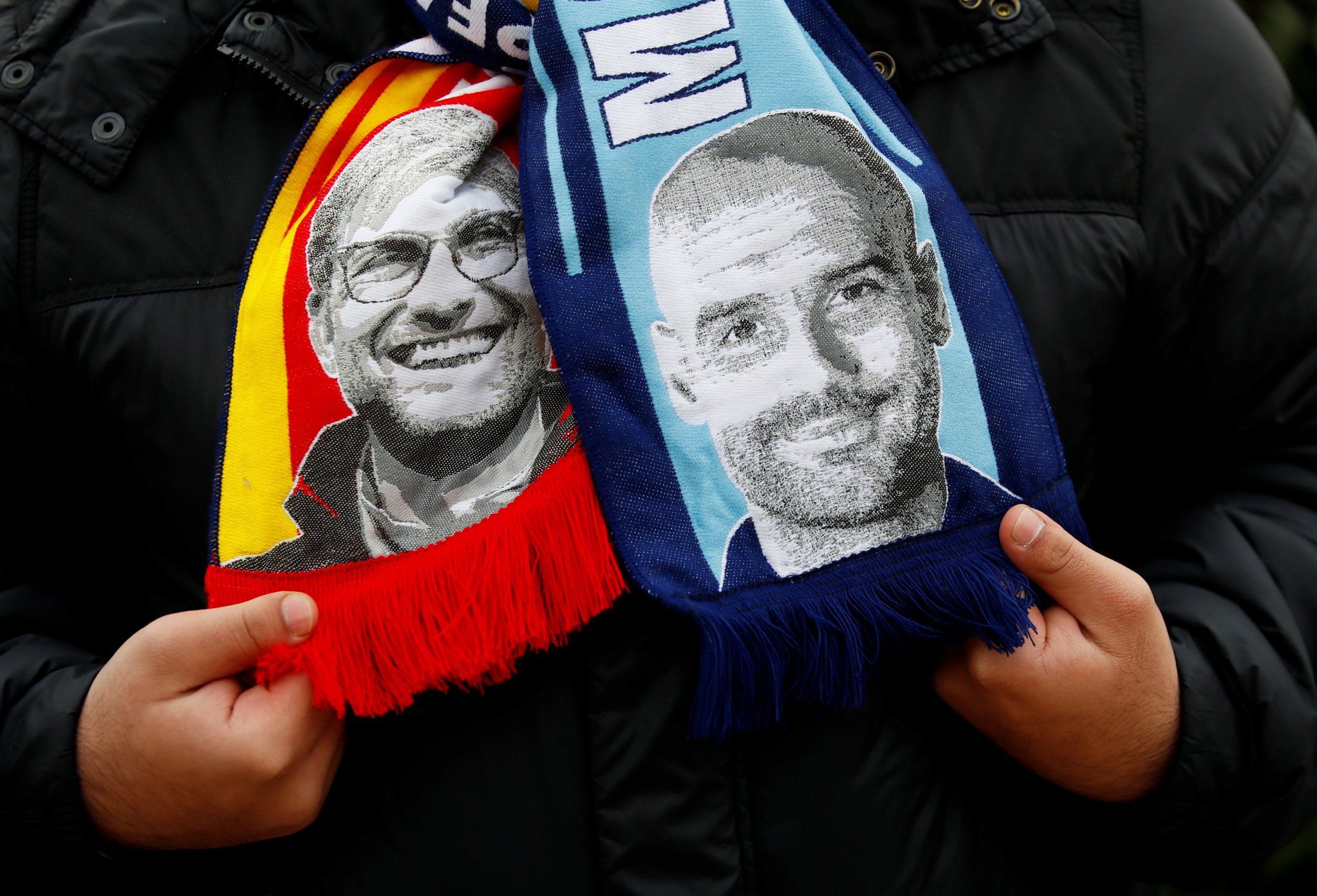It could have all been so different for Arsenal on Saturday. While a 15-minute spell of causing endless problems for Chelsea's defence brought about two goals to level the scores in a shock first-half turnaround at Stamford Bridge, it probably should have resulted in a complete Arsenal comeback.
Pierre-Emerick Aubameyang and Henrikh Mkhitaryan both missed glaring chances as Chelsea suddenly appeared unable to deal with an attacking threat they were otherwise completely comfortable with for the rest of the ninety minutes, barring that hellish quarter of an hour prior to half-time.
After the 3-2 victory, Maurizio Sarri lamented that 15-minute spell of sudden Arsenal dominance and Chelsea regression, labelling it 'horrible' and even using it as evidence for why the west London club aren't title contenders at this moment in time. But the assumption, when coupled with his prior declaration that this Chelsea team would require a few months to fully adapt to his methods, is that these intervals of utter defensive chaos will eventually be ironed out.
After all, we're talking about a team that has done a full philosophical u-turn over the course of the summer, swapping a tactically savvy pragmatist in Antonio Conte for an aesthetic idealist in Sarri, and Chelsea's habits off the ball will need to change completely. Rather than sitting back and inviting pressure onto them before hitting on the break, the new Blues boss wants his side to push up high and press the ball in every area. There have only been three changes in personnel first-team personnel too, so a period of transition is understandably inevitable.
However, if recent Premier League history tells us anything, it's that such lapses are symptomatic of the high-pressing style of play Sarri wants to implement at Stamford Bridge. The Italian's ultimate objective is to make Chelsea far closer aligned to Liverpool and Manchester City, something his tactics and formation are already adhering to, but both of those teams have suffered the same problems over the last few years without really finding an adequate solution.
[brid autoplay="true" video="280645" player="12034" title="Rafa's Pub Facts Dodgy De Gea & Arsenal's MiniRevolution"]
Perhaps the strongest supporting arguments come via Manchester City's last two exits from the Champions League. In 2016/17, Monaco scored twice in the space of just eight minutes in the first leg and again in the space of 21 minutes in the second to end City's hopes of European glory, while Pep Guardiola's side completely collapsed at Anfield last season - conceding thrice in 19 minutes to make the second leg essentially a dead rubber. For a team that have been otherwise irresistibly dominant in practically every game indiscriminate of the quality of opposition, those short capsizing spells were decisively out of character.
But for Jurgen Klopp too, it has been a recurring issue. During his first few seasons at Anfield, Liverpool became notorious for their incredible bursts of offensive energy, bulldozing the opposition to often put the scoreline beyond reach within a matter of minutes.
[ad_pod ]
But Liverpool could never keep the pace up across a whole match or a whole season; every spell of relentless pressure would be partnered by an underwhelming lull, just as every run of subsequent wins would soon be brought to an end by less convincing periods of draws and defeats usually to fairly unspectacular teams.
Nowadays, the much-feared Klopp blitz is far less prevalent - while Liverpool will always look to start games strongly, there's a much more measured and varied pace about them.
The shared phenomena, which Chelsea suffered for the first time on Saturday, is no mere coincidence either. It lays in the precision of such a perfectionist way of playing. When every cog in the machine is functioning as it should and at the pace it should, the brand of football is as gorgeous as it is almost unconquerable. But as soon as a few small parts fall out of sync, everything quickly unravels.
That's when the opposition tend to suddenly strike, and it becomes a question of how soon the side can regain their composure and groove. City couldn't during their last two Champions League exits and in truth, Chelsea were saved by half-time against Arsenal. Another five minutes and that third goal to take the lead probably would have been netted by the visitors.
It's something Sarri and Chelsea fans may simply have to accept, but perhaps this is part of the parcel of the new Blues identity Roman Abramovich has been so desperately searching for since taking over the club back in 2003.
Dramatic stints of disaster can feel like an incredibly small price to pay when the style of football is so eye-catching and impressive - it's just a question of when they come for Chelsea, and how costly those moments subsequently prove to be. If the west Londoners can keep the balance in their favour, those 15-minute spells of pure defensive disaster will be a welcome compromise.



